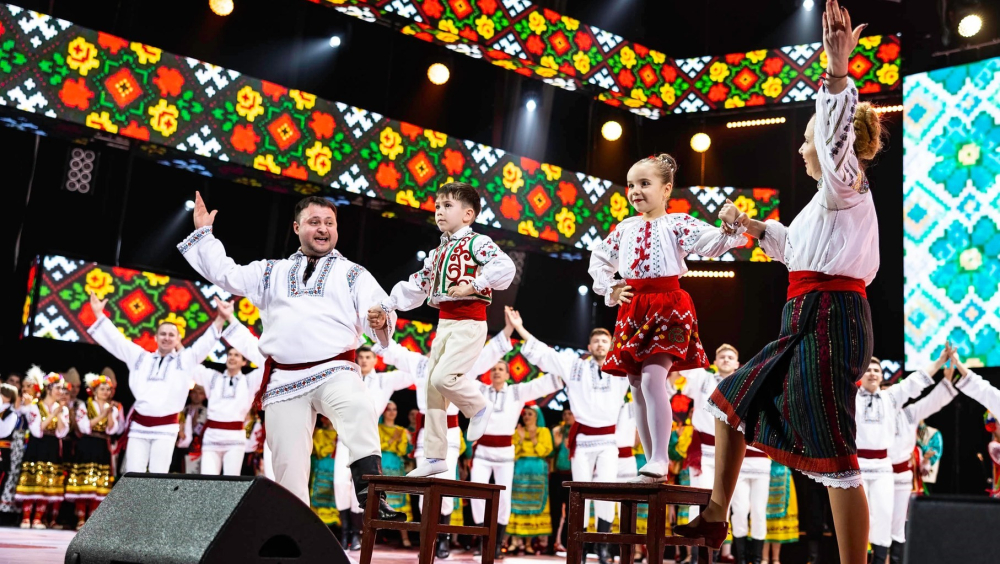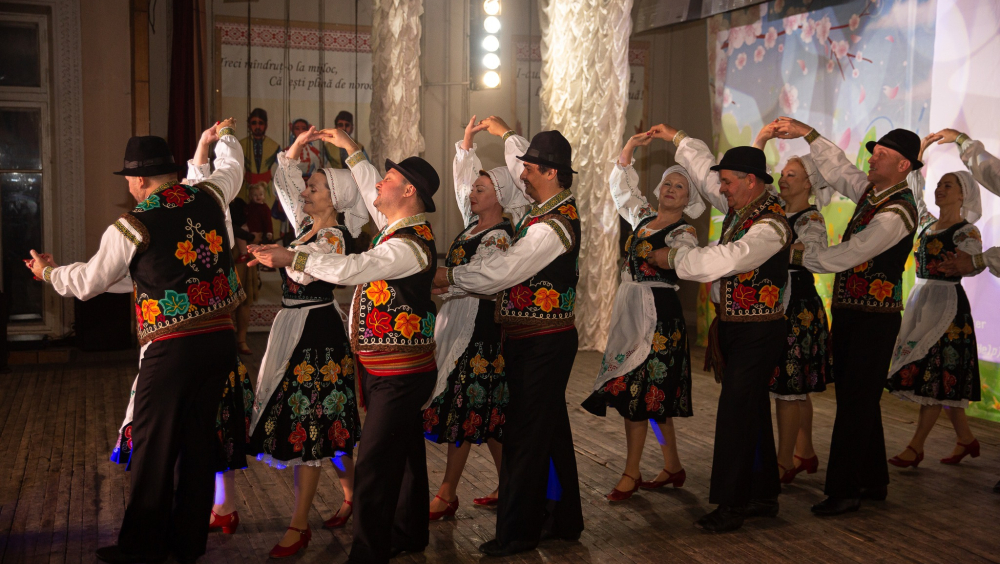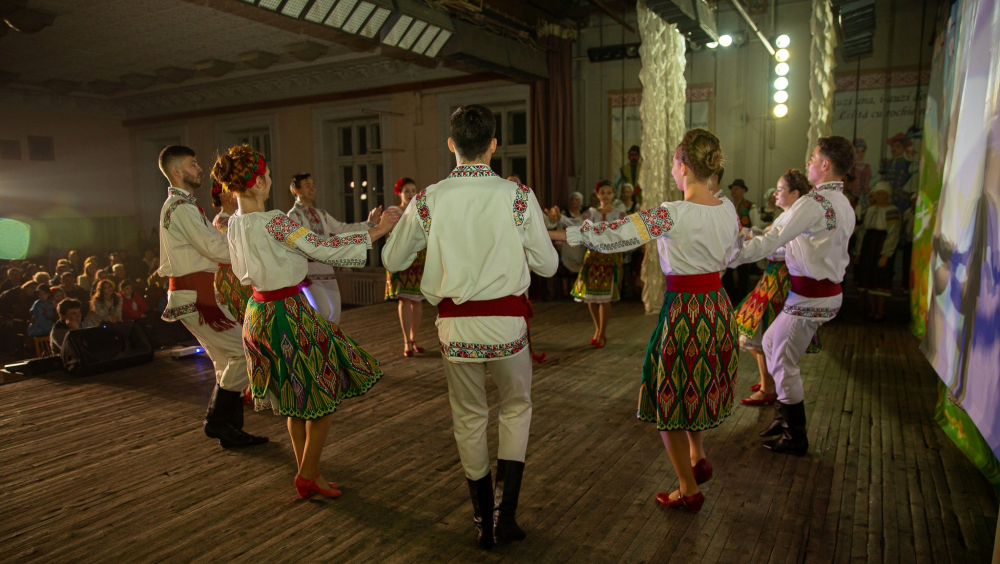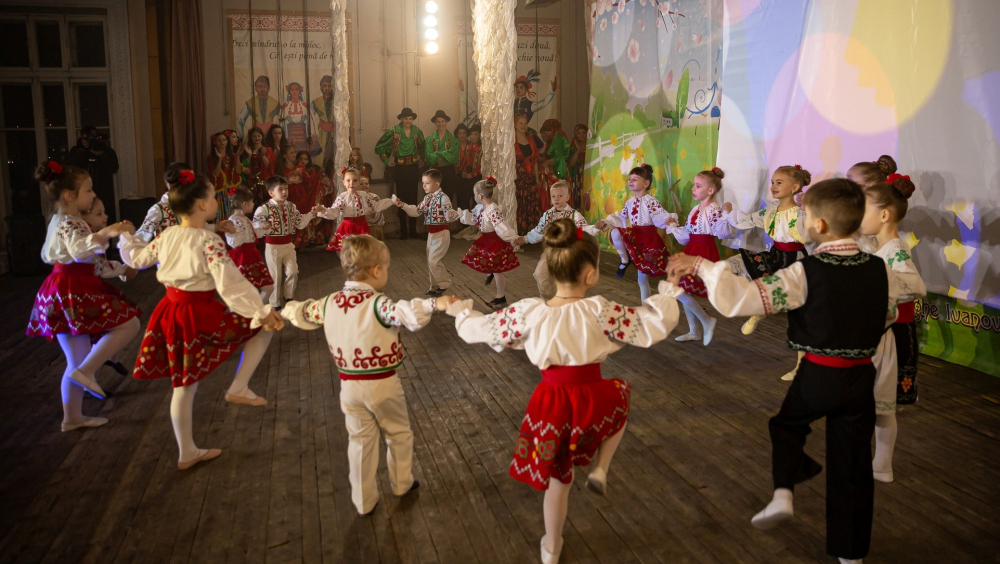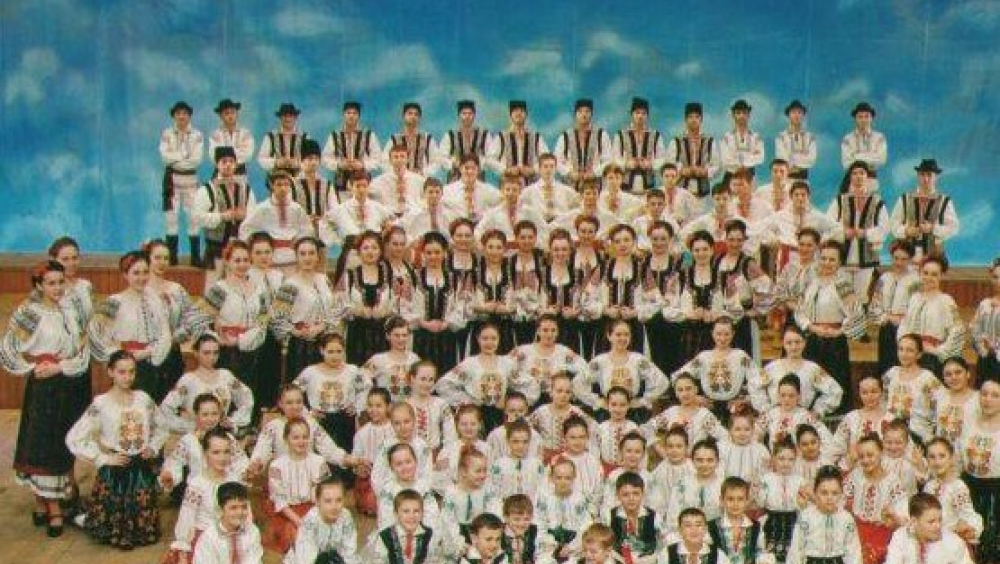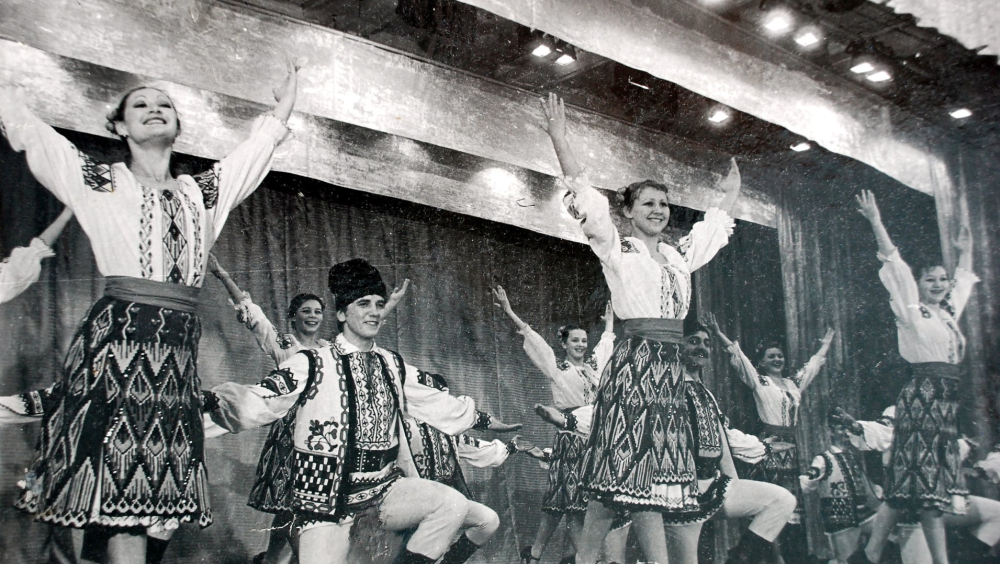The "Veselia" Ensemble - the heritage of the past in the perspective of the development of future generations and European integration
This is the story of a Moldovan Folklore Dance Ensemble "Veselia" - the heritage of the past in the perspective of the development of future generations and European integration. A dance group which has existed for more than 65 years and has crossed a very long path with obstacles, crises, political issues, pandemic and war along the years. Folk dance ensemble "Veselia" from Republic of Moldova plays a crucial role in preserving and conserving cultural heritage by contributing to enriching the cultural life and maintaining the cultural identity of the local community. Is impressive to observe how this dance group is contributing to the transmission of culture and cultural heritage to audiences through dance and song. Even in difficult conditions, the ensemble continued and continues its activities, making a significant contribution to the local cultural scene.
Moldovan Folklore Group “Veselia” (Ansamblul de muzică și dansuri populare “Veselia”) was founded in 1955 in the capital of the Republic Of Moldova – Chisinau, by the talented professor and choreographer Vasile Budeev. Initially, the members of the Ensemble were young workers from construction sites in Chisinau who were passionate about folk dance, and later, they joined in the “hora” (a traditional circle dance - a symbol of unity and celebration in Moldova culture) and youth studios.
“Veselia” ensemble remaines consistently a refuge for the community, providing a space where people feel at home and safe. It is a place where, despite all external pressures, people feel peace, and where the traditions of dance and folk culture continued to thrive, offering the community a constant source of inspiration and relief.
This is the story of a Moldovan Folklore Dance Ensemble “Veselia”, which has existed for more than 65 years and has crossed a very long path with obstacles, crises, political issues, pandemic and war along the years. Folk dance ensemble “Veselia” from Republic of Moldova plays a crucial role in preserving and conserving cultural heritage by contributing to enriching the cultural life and maintaining the cultural identity of the local community.
Moldovan Folklore Group “Veselia” (Ansamblul de muzică și dansuri populare “Veselia”) was founded in 1955 in the capital of the Republic Of Moldova – Chisinau, by the talented professor and choreographer Vasile Budeev. Initially, the members of the Ensemble were young workers from construction sites in Chisinau who were passionate about folk dance, and later, they joined in the “hora” (a traditional circle dance - a symbol of unity and celebration in Moldova culture) and youth studios. Vasile Budeev knew how to imprint the Ensemble with an unmistakable style of interpretation, a distinct color, building his repertoire on the foundation of old folk traditions, preserved and enriched later by the maestro Ion Musteaţă.
The name of the group – “Veselia” means ‘merriment’, because its repertoire is full of light and joy. Moldovan folk dance ensemble “Veselia” has earned a reputation for friendship and performing excellence as they have represented Moldova, accompanied by a professional orchestra at the most prestigious international folklore and traditional art festivals worldwide including: Canada, the USA, France, Montenegro, Belgium, Spain, Vietnam, Nicaragua, Greece, Bulgaria, Poland, Germany, Portugal and the Canary Islands.
Ensemble “Veselia” gives spectators an opportunity to see dances based on different traditional blowings of Moldovan Folklore, with a repertoire of 30 dances (folk, joke, ethnic dances (Ukrainian, Bulgarian, Gagauzian, Jewish, Gypsy, Russian, Belarusian, Romanian) as well, participants of the group love to perform jolly dances of the little forms, that contains jokes and stage shapes.
Almost 80 talented dancers and musicians compile the group (few of them being professionals). The fact that dancers in the ensemble span a wide range of ages, from 4 to 75 years old, and that some of them have spent their entire lives in this community, highlights the strong bonds created within the ensemble. From childhood to youth, from romantic encounters to forming families, the ensemble has been a witness and participant in these significant moments in the lives of its members.
The group's artistic director since 1978 is the esteemed cultural worker Gheorghe Ivanov - an ophthalmologist surgeon who continues to be active in this field, and today. He has dedicated 45 years of his life in cultivating the love for music and folk dance among people from this ensemble. It is remarkable that dancers in this ensemble are not professionals but people with diverse professions such as doctors, engineers, IT specialists, bankers, pupils and other professions. This diversity highlights that the passion for dance and popular culture manages to bring together people from different fields and unite them around the same love for traditions.
This dance group has crossed a rich history marked by numerous challenges and successes. Over time, the ensemble has experienced moments of glory on prestigious stages and in packed auditoriums, as well as difficult periods characterized by poverty and the struggle for survival. During the Soviet Union era, many used the ensemble as a means of escaping the sphere of influence of the USSR towards Europe or America. After the declaration of independence of the Republic of Moldova, when the country went through a period of instability and widespread poverty, culture and art were often replaced by primary concerns related to survival. In these challenging times, “Veselia” ensemble remained consistently a refuge for the community, providing a space where people felt at home and safe. It was a place where, despite all external pressures, people felt at peace, and where the traditions of dance and folk culture continued to thrive, offering the community a constant source of inspiration and relief.
The appreciation and admiration for this folk dance ensemble along with the dedication and volunteer spirit of the dancers is precious. The fact that they offer their time and energy to participate in the ensemble's activities without receiving material reward, but only a spiritual one, is remarkable. This choice highlights their authentic passion for culture and folk traditions, as well as their desire to contribute to keeping the ensemble's name alive. Through their selfless commitment, the dancers not only keep the cultural heritage of the ensemble alive but also pass on the values and dedication needed to maintain this tradition further. It's a testament to their love and respect for the ensemble's history and a significant contribution to its longevity and success. Their voluntary efforts bring to the leading edge not only the beauty of dance and culture, but also the sense of community spirit and dedication to a common purpose. The circumstance that all developments within the ensemble rely on the contributions of the dancers and the income generated from paid performances indicates not only remarkable resilience but also a profound dedication to maintaining cultural life. These limited resources are directed towards the minimal upkeep of the cultural house, providing the ensemble with vital space to carry out its activities. The sustained efforts of the dancers to continue dancing and to transmit cultural values to the new generations demonstrate a deep commitment to cultural heritage. It is an impressive example of cultural resilience and the transmission of traditions despite financial and social challenges. The activities of this ensemble contributes to maintaining and promoting local and national cultural identity.
Folk dances reflect the history and values of a community. The ensemble provides opportunities for the cultural education of the new generations. By participating in such activities, young people learn about traditions, history and cultural heritage of their community, thus contributing to the transmission of this knowledge further. An ensemble provides opportunities for people of all ages to engage in recreational and cultural activities, thereby strengthening community cohesion.
The folk dance group “Veselia” is a cultural institution that acknowledges, promotes, maintains and conserves the significance of local cultural heritage through dance, art, costumes and music within the European context, being community-centered and encourages active participation of its members, is an impressive example of cultural resilience in the transmission of traditions despite financial and social challenges.
The purpose and mission of the Ensemble “Veselia” revolve around preserving cultural heritage, promoting cultural exchange, nurture talent, advertise dance among children and adolescents, represent the Republic of Moldova around the world and spread joy and happiness through dance. Our goal as a cultural institution is to significantly contribute to the preservation and promotion of cultural heritage, ensuring that traditions and cultural values are sustainably transmitted and appreciated and understood by future generations. The activity of the folk dance ensemble “Veselia” , serves as a means of cultural diplomacy, it contributes to building positive relationships between the country and other EU member states, promoting mutual understanding in the cultural field. As in the annual reports of CIOFF - UNESCO, the Dance Ensemble "Veselia" from Moldova is mentioned with the highest praise for outstanding performances and artistic mastery at various international festivals.
Through its performances and activities, “Veselia” serves as a cultural ambassador, promoting understanding, appreciation, and respect for diverse cultural expressions within Europe. By celebrating folk traditions, “Veselia” highlights the importance of preserving cultural heritage as a means of fostering unity and solidarity among European nations, its engagement in cultural exchange programs, collaborations with other ensembles across Europe and participation in international festivals facilitate cross-cultural dialogue, strengthening the bonds of European integration.
Finally, "Veselia's" dedication to preserving and promoting folk heritage plays a vital role in advancing the common values of diversity, inclusivity, and cultural dialogue that form the foundation of European integration.
